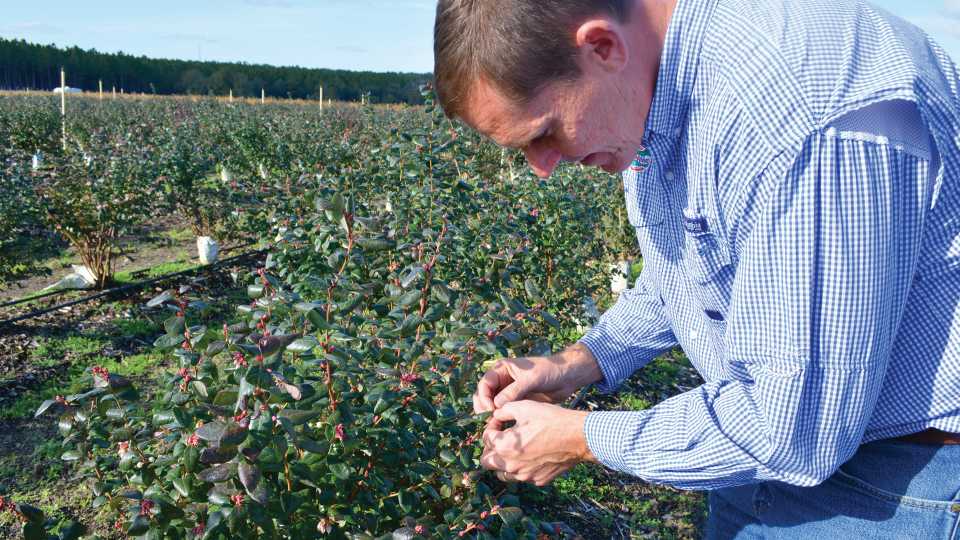By Frank Giles
Ryan Atwood, co-owner of Amber Brooke Farms, has become a leading voice in Florida’s blueberry industry. He’s been an advocate for trade protection and has encouraged growers to innovate to stay ahead of the curve in a rapidly evolving market. We asked Atwood to provide some insights into the current blueberry environment. He says he’s hoping for a better 2024 crop, as plants look good over the summer.

Photo by Frank Giles
Q: How was last season from a production and market standpoint?
A: Last season was not good for most growers. Growers in South Florida were heavily impacted by Hurricane Ian. In Central Florida, we were hit by the four-day Christmas freeze. The freeze threw off our timing, and the crop came in with or after Georgia’s harvest. Early-season prices are not as strong as they were historically. Add in increased costs on everything, which is impacting our margins greatly.
Q: What are the major pests you are currently fighting on the farm?
A: Chilli thrips are a summertime pest that require chemical controls. As far as diseases go, algal stem blotch and phytophthora can be problematic during the summer growing season.
Q: How important is firmness when it comes to the blueberry market?
A: The marketplace is wanting a firm, big and bloomy blueberry. Consumers are paying more for propriety varieties that have crunch/firmness.
Q: What percentage of your crop are you mechanically harvesting now?
A: We have been averaging around 15% over the last few years. However, we expect that number to increase starting next season, as we have new plantings of more machine-harvestable varieties coming into maturity. I am hoping to raise it to 30% to 35% this year.
Q: How important is the industry transition to mechanical harvesting?
A: I believe it is extremely important. The sooner the better. It costs around $12,000 to replant an acre of blueberries. Also, you lose one year of production, so another $10,000 an acre to grow the bush out without a crop. Replanting can be very expensive. The advice I emphasize to others is to try to replant 5% to 10% of your acreage every year on average. I also focus more on root health as we move to more machine harvesting.
Q: What newer varieties have you planted recently?
A: We have planted a lot of Optimus, due to its machinability. Previously to that, we had planted a lot of Arcadia. We also still grow quite a bit of Emerald, although we are not planting any new Emerald acreage. We most likely will plant Sentinel in the near future. We also participate in the University of Florida’s breeding program.
Q: Is there anything else that you would like to add?
A: I think marketers need to communicate with retailers about the new economic realities of growing specialty crops. Specialty crops require a lot of labor, and those labor expenses are on the rise in Florida. Sales prices need to be adjusted to provide a profit. If not, we will lose the blueberry industry in Florida.










